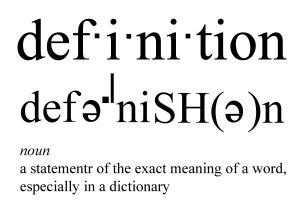The term Minority Business Enterprise (MBE) refers to a business that is at least 51% owned, operated, and controlled by one or more individuals who are members of a recognized minority group. In franchising, MBE certification can open access to special funding, procurement, and partnership opportunities with both public and private organizations.
A Minority Business Enterprise (MBE) is a business recognized for being majority-owned and managed by individuals from specific minority backgrounds, such as African American, Hispanic American, Native American, Asian American, or Pacific Islander. In the context of franchising, MBE certification can provide a significant advantage by increasing visibility and eligibility for corporate supplier programs, government contracts, and diversity-driven franchise incentives. To become certified, an MBE must undergo a review process—often conducted by organizations like the National Minority Supplier Development Council (NMSDC) or state and municipal agencies—to verify minority ownership, operational control, and independent management. Many franchisors actively seek to include MBEs in their networks as part of their diversity and inclusion initiatives. MBE certification can also strengthen a franchisee’s access to specialized funding, mentorship programs, and community partnerships.
Additional Definition: A Minority Business Enterprise 'MBE' is a business that is typically majority-owned and controlled by U.S. citizens who are members of certain defined minority groups. Some MBEs may be granted preferences in terms of obtaining contracts, for example, when municipalities control a venue, such as an airport concession authority on toll roads, etc.
The  designation originated in the United States during the civil rights movement of the 1960s, when government and business leaders began recognizing the need to promote equal economic opportunity. The first formal MBE programs were established by federal and local governments to encourage minority participation in business ownership and contracting. In 1972, the creation of the NMSDC standardized certification and connected MBEs with corporate buyers. Within franchising, the MBE concept has gained prominence as brands strive to reflect their customer base and promote diversity in ownership. Today, many franchisors offer reduced fees or targeted recruitment programs to attract qualified MBE franchisees, helping expand franchise ownership opportunities across diverse communities.
designation originated in the United States during the civil rights movement of the 1960s, when government and business leaders began recognizing the need to promote equal economic opportunity. The first formal MBE programs were established by federal and local governments to encourage minority participation in business ownership and contracting. In 1972, the creation of the NMSDC standardized certification and connected MBEs with corporate buyers. Within franchising, the MBE concept has gained prominence as brands strive to reflect their customer base and promote diversity in ownership. Today, many franchisors offer reduced fees or targeted recruitment programs to attract qualified MBE franchisees, helping expand franchise ownership opportunities across diverse communities.
Learn more at: The Educated Franchisee, 3rd Edition
| Requirement | Description |
|---|---|
| Ownership | At least 51% of the business must be owned by one or more individuals from a recognized minority group. |
| Control | The minority owner(s) must manage day-to-day operations and have control over business decisions. |
| Independence | The business must operate independently and not be dominated by a non-minority entity. |
| Certification Agencies | Common certifying bodies include the National Minority Supplier Development Council (NMSDC), state and local government programs, and certain corporate diversity offices. |
| Certification Type | Ownership Requirement | Certifying Agency | Primary Benefit |
|---|---|---|---|
| MBE (Minority Business Enterprise) | At least 51% minority-owned, operated, and controlled | NMSDC, State & Local Governments | Access to corporate supplier diversity and government contracts |
| WBE (Women Business Enterprise) | At least 51% women-owned and managed | WBENC, State & Local Agencies | Eligibility for women-focused supplier and funding programs |
| VBE (Veteran Business Enterprise) | At least 51% veteran-owned and operated | VA, State Veteran Programs | Access to government contracts and veteran-focused funding |
In 2018, a certified Minority Business Enterprise (MBE) owner opened a series of quick-service restaurant franchises in partnership with a national brand that prioritized minority franchise ownership. Through MBE certification, the owner gained access to supplier diversity programs and business development grants, helping fund expansion and create dozens of jobs in underserved communities. This case illustrates how MBE status can enhance both growth potential and community impact within franchising.
The Minority Business Enterprise (MBE) designation recognizes and supports minority-owned businesses by expanding access to opportunities, funding, and visibility. Within franchising, MBE certification not only strengthens diversity and inclusion efforts but also provides certified franchisees with a competitive edge through increased access to resources, networks, and community support.
```
**💡 Suggested Enhancements (not part of HTML):**
1. Add a short section outlining **steps to apply for MBE certification**, including documentation, verification, and renewal.
2. Include a **visual infographic** comparing benefits and qualifying criteria among MBE, WBE, and VBE certifications.